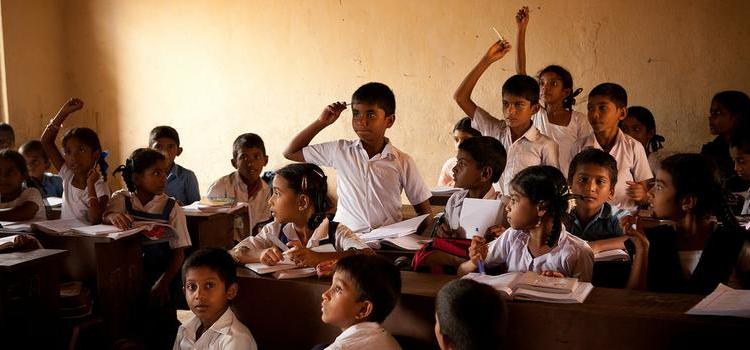This is the second part of a multiple part series on the Draft National Education Policy by tfipost.com, where we will analyze the changes recommended by the drafting committee for in sequence to the age of the child and with the current status.
The first part is on Early Childhood Education or ‘Foundation Stage’ (Preschool to 2nd Standard) of a child. To read the first part, click on the link below:
The National Education Policy proposes a restructuring of stages from 10+2 to 5 + 3 + 3 + 4 which will correspond with age ranges of 3-8, 8-11, 11-14, and 14-18 years, respectively. The second part is on Grades 3, 4, 5 which NEP names Preparatory (or Latter Primary) stage. In this stage, the children will be taught like Foundation Stage (field learning based on play and activity) but also introduced with textbooks for classroom learning.
The aim of this Preparatory stage is to teach basic numerical and reading skills to the student along with arts and physical education. The teacher of the Preparatory stage would be ‘generalist’ who could teach reading writing and arithmetic skills to students. Some specialized subject teachers for language and arts would also teach these students. One big proposal in the draft of NEP is to serve breakfast along with lunch, which is served under the Mid-Day meal programme. This would make the learning hours between breakfast and lunch period more productive, especially to the students from the disadvantaged community. “Both a nutritious breakfast (e.g. even just some milk and a banana) and a midday meal will be served to pre-primary and primary school students,” read the draft of NEP.
The draft proposes promotion of multilingualism from foundation stage because “children learn languages most quickly between 2-8 years, and multilingualism has great cognitive benefits for students.” It ‘encourages the schools to teach three languages to students from the early stage – mother tongue, Hindi and English for non-Hindi speaking states and Hindi, English and one Indian language for Hindi speaking states. It is a scientific fact that children learn quickly if they are taught something in their mother tongue. Therefore NEP lays down great emphasis on the use of mother tongue as ‘medium of instruction’.
If we read the school education part of NEP, ‘flexibility’ seems to be the keyword. The draft NEP proposes for no hard separation of curricular, extra-curricular, or co-curricular areas, arts and sciences, vocational and academic streams. The students will be given a wide range of subjects to choose from across arts, sciences, humanities, sports, and vocational education. As per the draft NEP, the aim of school education will be to “develop scientific temper, aesthetic sense, communication, ethical reasoning, digital literacy, knowledge of India, knowledge of critical issues facing the community and the world.”
The draft also proposed for census examinations in for 3rd standard and 5th standard students “To track students’ progress throughout their school experience, and not just at the end in Grade 10 and 12 – for the benefit of students, parents, teachers, principals, and school management committees in planning improvements to schools and teaching-learning processes.”
Overall the draft proposal seems quite ‘revolutionary’ and it aims to shift the focus from ‘rote learning’ to ‘critical thinking’ and encourage ‘problem-solving approach’ among students. If implemented, the policy will make the life of children more fun and less burden and they will be prepared to face the next stage of life.




























